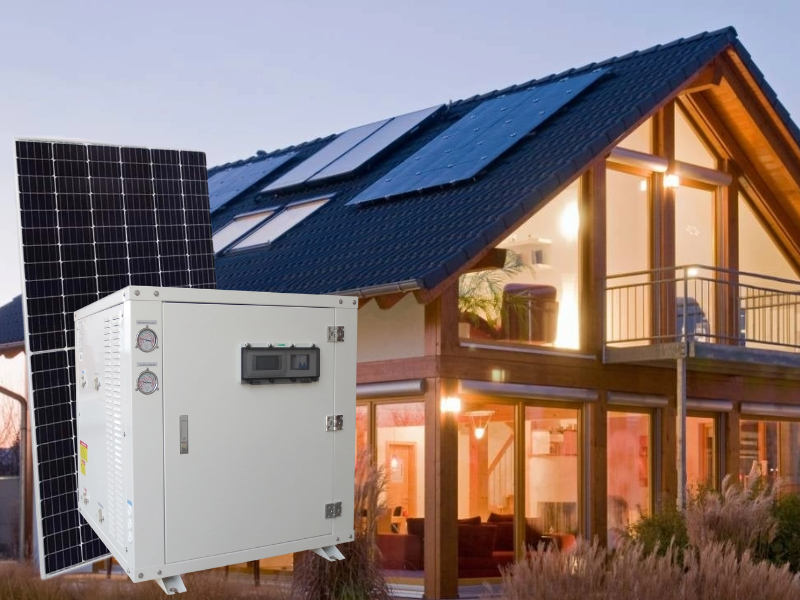At 300% to 500%+ efficiency, heat pumps are the most efficient way to heat an off-grid home. Precise financials depend on property heat demands, insulation, and more. Biomass boilers offer an efficient heating method with a low carbon impact. Electric only heating is the most expensive option for off-grid heating. Oil and LPG are also costly and carbon-heavy.
Heat pumps
Renewable heat sources should be the primary ambition for homeowners, and this is where heat pumps come in as a great option. Heat pumps are particularly suitable for off-grid properties in the UK, and are emerging as the frontrunner for renewable heating.
Currently, there are two types of heat pumps that are popular:
Air Source Heat Pumps
Ground Source Heat Pumps
An air source heat pump (ASHP) uses the principle of vapour compression refrigeration to absorb heat from one source and release it in another. Put simply, an ASHP absorbs heat from the outside air. In terms of domestic heating, it can also be used to produce hot water (as much as 80 degrees Celsius). Even in colder climates, this system has the ability to extract useful heat from minus 20 degree ambient air.
A ground source heat pump (sometimes labelled a geothermal heat pump) is another renewable heating source for off-grid properties. This system harvests heat from below the surface of the earth, which is converted into energy for heating and hot water. It is an innovation that takes advantage of moderate temperature to remain energy efficient. These systems can work with deep vertical boreholes, or shallow trenches.
Both of these systems use some electricity to operate, but you can pair them with solar PV and battery storage to minimise costs and carbon.
Pros:
Whether you choose air source or ground source heat pumps, it is considered as one of the best off-grid heating options with the highest efficiency.
You can enjoy high energy efficiency and more effective indoor heating. It also operates more quietly and requires minimal maintenance. Finally, you won’t ever have to worry about carbon monoxide poisoning.
Cons:
The main downside to a heat pump is that they require the installation of an indoor and outdoor component. GSHPs need a lot of outdoor space. ASHPs need a clear area on an external wall for the fan unit. Properties need space for a small plant room, although there are workarounds if this is impossible.
Costs:
The cost of installing an ASHP ranges between £9,000 – £15,000. The cost of installing a GSHP is between £12,000 – £20,000 with additional costs for ground works. The running costs are relatively cheap compared to other options, due to the fact that only a small amount of electricity is needed for them to operate.
Efficiency:
Heat pumps (air and ground source) are two of the most efficient systems around. A heat pump can provide an efficiency of up to 300% to 500%+, since they do not generate heat. Instead, heat pumps transfer natural heat from the air or ground.
Post time: Nov-26-2022


